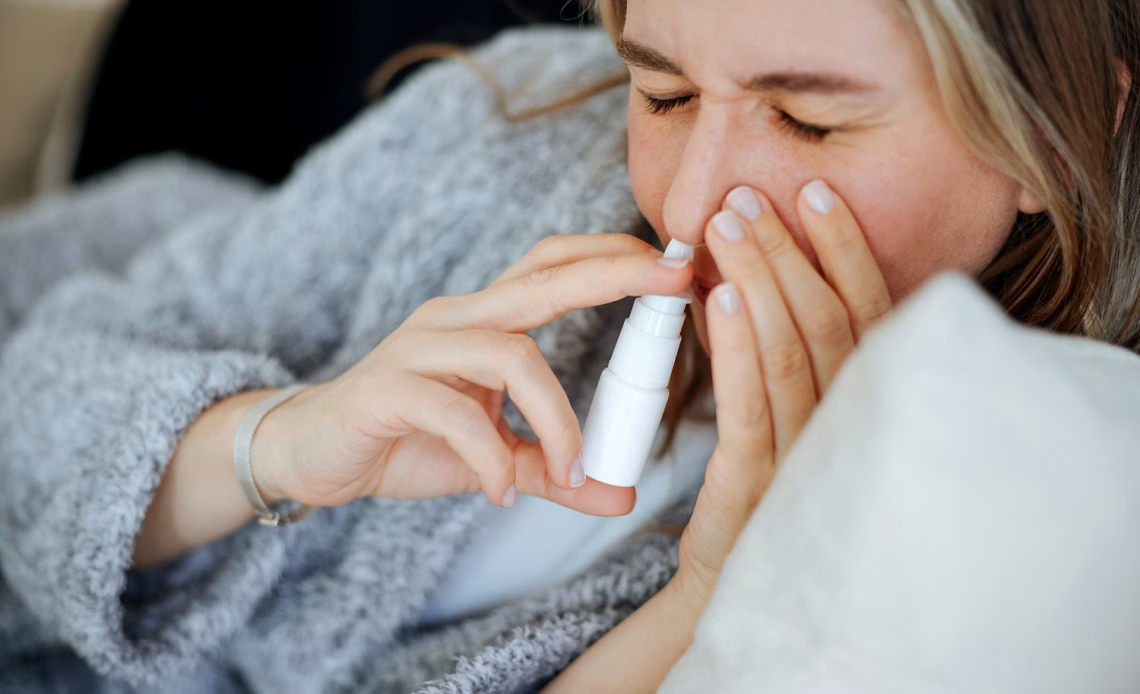An over-the-counter nasal spray which has been used for years as a safe and effective treatment for seasonal allergies could potentially prevent Covid infections, according to clinical trial results released Tuesday.
The antihistamine azelastine works as an antiviral against a range of respiratory infections, including influenza, RSV and the virus that causes Covid, a growing number of studies have shown.
German scientists at Saarland University Hospital recruited 450 adults, mostly in their early 30s. The first group of 227 participants tested a puff of the nasal spray in each nostril, three times a day. The other 223 were instructed to do the same, but with a placebo spray.
All participants were given Covid rapid tests twice a week over the course of nearly two months. By the end, the incidence of Covid infections in the azelastine group was 2.2%, significantly lower than the 6.7% infection rate in the placebo group.
Azelastine also appeared to reduce rates of other symptomatic respiratory infections, in general, the study published in JAMA Internal Medicine found.
The researchers said they were not entirely sure why azelastine appears to be effective at limiting Covid infections, but they suggested that it might bind to the virus in the nasal mucosa, the moist membrane lining the nose which pathogens must navigate to enter the body, and inhibits a key enzyme that it uses to replicate.
Another possibility is that azelastine interacts with the ACE2 receptor, the preferred entry point which the Covid virus uses to access human cells, and prevents it from latching on.
“Our findings suggest azelastine could serve as a scalable, over-the-counter prophylactic against Covid, especially when community transmission is elevated or in high-risk settings such as crowded indoor events or travelling,” said Dr. Robert Bals, professor of internal medicine and pneumology at Saarland University and the study’s senior author.
The trial had limitations, namely that the participants were all young and relatively healthy, he said.
Bals said that azelastine should not be seen as a replacement for vaccinations, and larger studies were needed before recommending it as a routine preventative measure for the general public, and especially vulnerable groups.
Dr. William Messer, associate professor of molecular microbiology and immunology at Oregon Health & Science University, who was not involved with the trial, described the findings as “reasonably convincing” as a way to…
Click Here to Read the Full Original Article at NBC News Top Stories…

